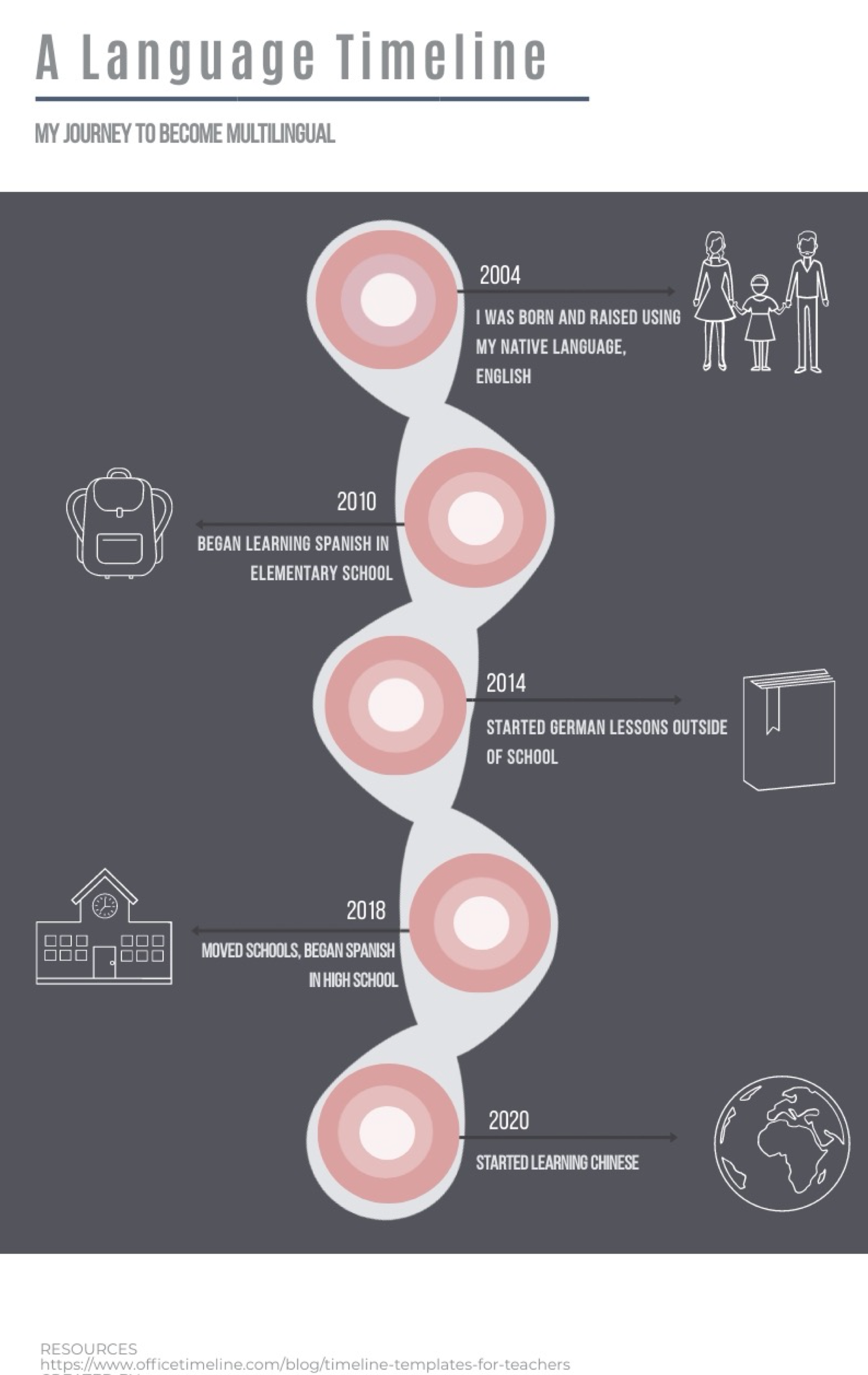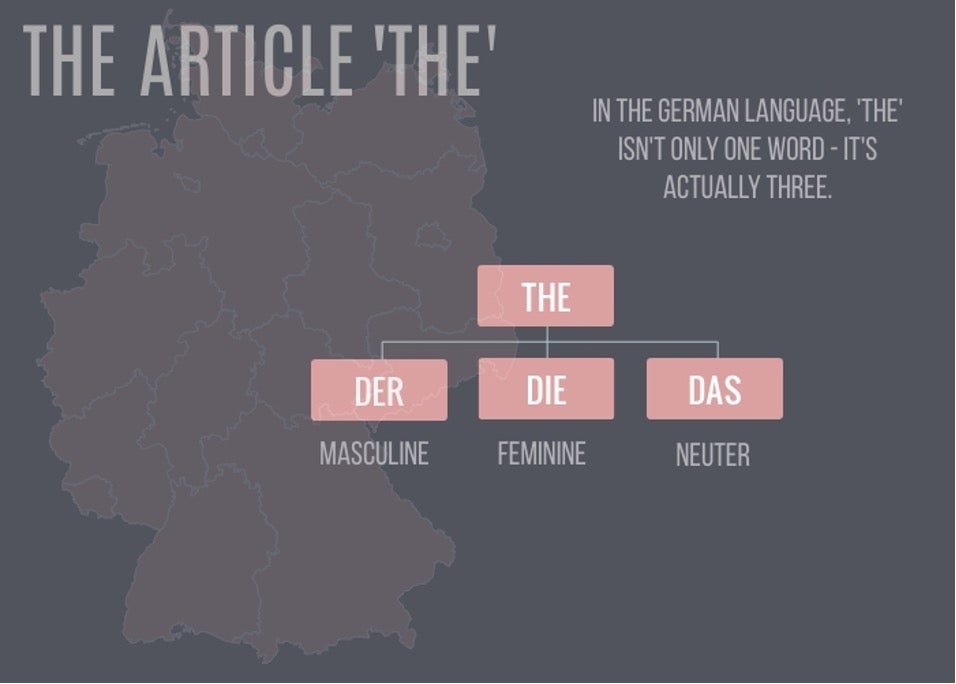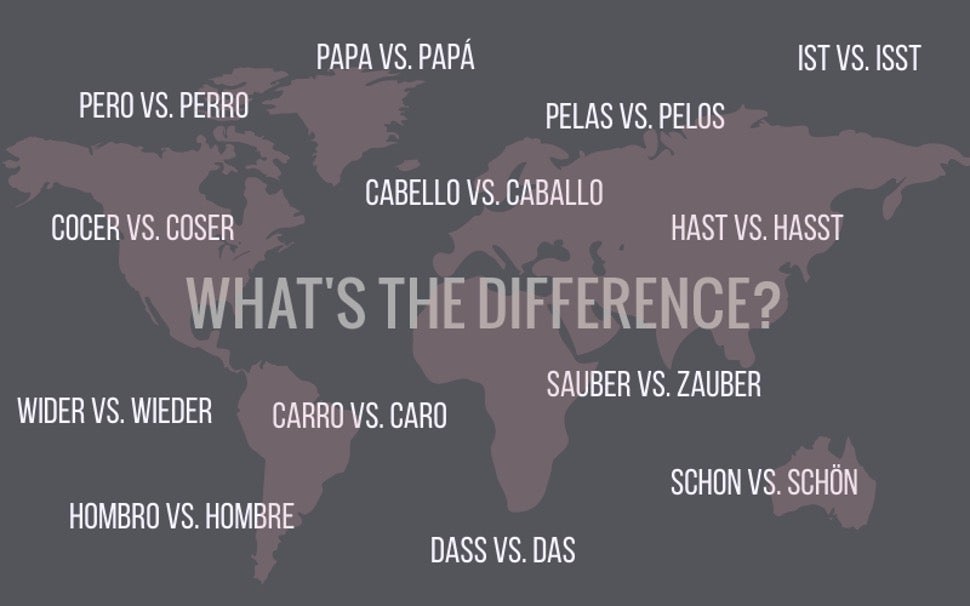Chapter 7: English and the global perspective
7.2.1 The challenges of becoming multilingual (argument from experience)
Anonymous English 102 Writer
September 2020

When learning another language, you basically must take everything that you know about your current language and throw it out the window. Perhaps it’s not as dramatic as that, but many of the things you know to be true about your current language will not pertain to the new language that you are learning. Although many languages are similar and stem from the same origin – take for example, the romance languages, which all descended from Latin – each has its own nuances that make it unlike any other. In order to understand this new language, you must let go of the current boundaries and rules that have been set for your language. To illustrate this, I’ll describe my experience with learning German. As we all know, in the English language there is only one definite article in front of a noun- the. The dog. The train. The car. But when I first began learning German, I was surprised to learn that there is not only one definite article in the language, but three. Suddenly, the dog, the train, and the car became der Hund, die Bahn, and das Auto. And not only that, but each specifies the nouns gender, der being masculine, die feminine, and das neuter. And wait – the train is a girl? Did you just assume its gender? This confused me to no end, and I was often left guessing the articles of the nouns I needed to know. And in the case of German, where it is important to know the articles of nouns in order to form proper sentences, a 33.33% chance of me being correct was not the best. If I had learnt German as a child, I would have picked this article confusion up as I grew, but since that was not the case, I instead spent hours upon hours with my good buddy flashcards. Memorization was the only way that I was able to somewhat overcome this challenge. Nevertheless, I still have much more work to until I can confidently name the article that goes with every word in German.

Another difficulty of learning a second language is forgoing the accent of your first language. When you are a child, you learn the sounds that make up your language, so you don’t have an accent. When learning a new language later in life, with sounds that don’t appear in your native language, it is harder to produce these sounds accurately. For example, one of the sounds that I always struggle with in German is the vowel ö, seen in words such as schön(beautiful). This vowel does not exist in the English language and so learning to pronounce it accurately has been challenging. Another example can be found in the words perro(dog) and pero(but) in Spanish. To non-native speakers, both words can sound identical, making it hard to decipher which is which. The difference is in the ‘rr’ of perro, which make a trilled or rolled ‘r’ sound. Being able to pick out and replicate that distinction between words can be very tricky for non-native speakers. The same applies to my previous example. Alongside the word schön in German, there also exists schon(already). I especially have a hard time pronouncing and hearing the difference between the two. Having so many similar words and sounds that don’t exist in your native language can make it extremely difficult to become fluent.

Perhaps the most important challenge of learning a new language is having dedication. If you are in a position like me, where you are learning a new language that is not spoken all around you, 24/7, it is much harder to keep up with it. Part of the reason that learning your first language as a child is so much easier is because you are always immersed in it. From the moment you are first born, you are exposed to the language around you. It’s always there, endlessly being repeated, making it easier to pick up. When learning a language in a classroom, however, it is much different. You are only subjected to hearing that language for the class period, then, you go out into the comfort of your native language again. In order to learn the language, you must try to replicate that immersive experience as much as possible. Instead of picking up a language like a child does, you must force yourself to soak it up through endless practice.
Elaborating that immersive concept even more, I’d like to give my personal example with learning Spanish and German. I started learning Spanish when I was in first grade. We would have class with our Spanish teacher once a week, where we would review vocabulary, practice conversation, etc. – the regular things you do when learning a language. I began learning German in fifth grade at a school dedicated to the language and the culture. We also had class once a week, but as time passed on, I noticed that my German speaking and comprehension abilities had begun to surpass my Spanish capabilities. Why was this? I had already been learning Spanish for five years before I began taking German. The answer boils down to how both of my teachers tried to recreate that immersive experience. While my Spanish teacher often spoke in English, my German teacher spoke 99.9% of the time in German. Although I felt very intimidated at first, not knowing anything that she was saying, in the long run, I benefited the most from it. By speaking majority of the time in the language that we were trying to learn, my teacher recreated a more realistic experience – one that mirrored as close as possible to what it would have been like if we had been born into that language and culture. Of course, there was no way that we could become fully immersed in German by having class only once a week, but over time, those class hours built up. About two and a half hours of pure German each week slowly grew my ability. That class time combined with studying outside of school allowed me to continually improve my German, until I was much better at it than Spanish. However, my Spanish did start to pick up speed when I started high school and met another teacher who was all about the immersive way of teaching. I think that I learned more from that teacher in one year, than I did in all eight year of instruction from my previous teacher. That just goes to show how important recreating – and sticking as close as possible to – that immersive way of language learning is.
But even throughout all this challenge, learning new languages has proved to open much opportunity for growth in my life. If you were to ever meet me in person, you could probably tell from only a few sentences exchanged that I am quite a shy person. All my life I have struggled to keep up with the outgoing personalities that surrounded me. But through languages, I discovered a more adventurous side of my self – one that was eager to meet new people and step outside of my little, closed box and try new things. I found myself one summer, traveling to an unfamiliar country, to live with an unfamiliar family, and study in an unfamiliar school. I gave presentations in different languages, played roles in plays of another language, sang songs in front of large crowds in foreign languages, and so much more. Suddenly, I was confronting everything my shy self had previously tried to avoid. It was only through languages, through the endless struggle, that I found a passion worth more than my shyness.
I created all multimodal elements in this project using visme.co – https://www.visme.co/

